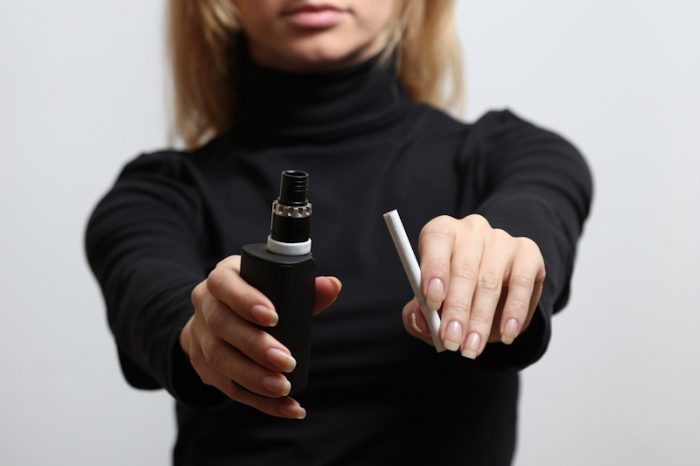
A recent study paper says that tobacco controllers should spread fear about vaping, but is it something to be afraid of? The answer is ‘no’, according to Public Health England, the Royal College of Physicians, Cancer Research UK, and the UK’s National Health Service.
Chengzhi Sun, Fangfei Wang, and Mengmeng Jiang recently published a paper titled “How Can E-Cigarette Fear Appeals Improve the Perceived Threat, Fear, Anger, and Protection Motivation of Young People”. The focus was investigating how well inducing fear of vaping in young people worked to stop them from vaping.
The problem with this is that making youths afraid involved telling them lies about tobacco harm reduction products.
“The lack of awareness regarding the risks of e-cigarettes and the misleading business propaganda caused an increase in the popularity of e-cigarettes among young people,” they wrote. They ignored Public Health England categorically stating that e-cigs are “at least 95% safer” than smoking – a position accepted by all of the major UK public health bodies.
Shockingly, the researchers continue: “The use of fear appeals is an effective method to achieve good control.”
Their research was based on the Extended Parallel Process Model and Appraisal-Tendency Framework, to present a controlled experiment to test the impact of fear on the perception of risk, emotions, and motivation of young people under the age of 35.
In total, the team used 333 test subjects.
They discovered that feeding half-truths and misinformation to young people resulted in them thinking poorly of electronic cigarettes, triggering fear and anger, and reducing their desire to try it – among both smokers and non-smokers.
The research paper was described by Louise Ross (chair of The New Nicotine Alliance) as, “shocking”. The charity has campaigned for years to get people to focus on the truth about nicotine, vaping, and tobacco harm reduction.
Is vaping to be feared?
Addressing GPs, Cancer Research UK and the Royal College of GPs said:
·Based on the evidence to date, vaping is a lot less harmful alternative to smoking tobacco
·Evidence so far that e-cigarettes could be a gateway to smoking in the UK is not convincing
·Existing evidence suggests that exhaled vapour is not harmful to others, in contrast to second-hand smoke which is
·Evidence suggests that e-cigarettes are more effective for smoking cessation compared to both over-the-counter nicotine replacement therapy and quitting unaided
·Users need to stop smoking and switch completely to e-cigarettes to get the reduced exposure to key toxicants from cigarettes
They told GPs they should discuss e-cigarette use as a means to stop smoking, and remember “that e-cigarettes offer a wide reaching, relatively low-cost opportunity to reduce smoking prevalence.”
Why do some people want to spread half truths about ecigs?
With all of the positive messages in the UK, some may wonder why others around the world choose to ignore the evidence our politicians rely on to form their evidence-based legislation? It isn’t easy to explain why they choose to do this, but what we see as a result are the negative stories that flood onto newspaper pages.
The important thing is to note that all of our health organisations are saying the same thing: that vaping is safer and it works as a quit smoking tool.
